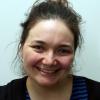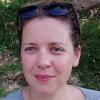History of Ocean Science, Technology and Medicine
Please set your timezone at https://www.chstm.org/user
Consortium Respectful Behavior Policy
Participants at Consortium activities will treat each other with respect and consideration to create a collegial, inclusive, and professional environment that is free from any form of discrimination, harassment, or retaliation.
Participants will avoid any inappropriate actions or statements based on individual characteristics such as age, race, religion, ethnicity, sexual orientation, gender identity, gender expression, marital status, nationality, political affiliation, ability status, educational background, or any other characteristic protected by law. Disruptive or harassing behavior of any kind will not be tolerated. Harassment includes but is not limited to inappropriate or intimidating behavior and language, unwelcome jokes or comments, unwanted touching or attention, offensive images, photography without permission, and stalking.
Participants may send reports or concerns about violations of this policy to conduct@chstm.org.
Upcoming Meetings
There are no currently scheduled upcoming events.
Past Meetings
-
October 19, 2021
Judy Johns Schloegel, Independent Scholar, "Instituting Biology in the Great Lakes: Scientific Survey Work and Inland Seas Maritime Culture, 1893-1903."
-
September 21, 2021
Penelope K. Hardy, University of Wisconsin-La Crosse, seeks your input on her new project: a four-volume edited primary source collection tentatively titled Knowing the Oceans, 1790-1914: A Global Documentary History.
-
August 17, 2021
Ann Elias, University of Sydney, chapters 2, 4 and 6 from her book Coral Empire: Underwater Oceans, Colonial Tropics, Visual Modernity (Duke University Press, 2019)
*NOTE SPECIAL TIME*
-
July 20, 2021
Presenting at a conference this summer? Attended a really good panel? Come tell us about it! We'll meet in July for a meet-and-greet and conference round-up. Bring your conference reports, publication announcements, and news for this informal get-together.
-
June 15, 2021
We will meet for a wrap-up/discussion of the year's meetings, asking members to identify together themes and questions that arise organically from the papers we've discussed so far. We'll also start planning for the fall; if you have ideas, requests, or questions about presenting a paper to the working group, bring them!
-
May 18, 2021
Jennifer Hubbard, Ryerson University, "Rescuing the World: The Food and Agriculture Organization and the Quest for Efficient Scientific Administration in World Fisheries"
-
April 20, 2021
Katharina Steiner, University of Wisconsin-Madison, "Changing Audiences, Changing Meanings: Haeckel’s Copepods and Biology’s Popular Culture"
-
March 16, 2021
Samm Newton, University of Wisconsin-Madison, "Pteropods Realized: From Bio-indication to Bio-inspiration"
-
February 16, 2021
Larrie Ferreiro, George Mason University, "The Technology of Armed Oceangoing Ships and the Rise of Overseas Empires"
-
January 19, 2021
Emily Hutcheson, University of Wisconsin-Madison, "'So-called' coral reefs: The Global Circulation of Algological Knowledge through Imperial and Scientific Networks 1896-1930" (from her dissertation in progress)
Group Conveners
-

Penelope Hardy
Penelope K. Hardy is a historian of science, technology, and medicine and an assistant professor at the University of Wisconsin-La Crosse. She studies the historical intersection of technology and the ocean sciences. Her current book project examines a series of nineteenth- and twentieth-century ocean-going research vessels and the cultures and practices surrounding their use. She is also editing a four-volume primary source collection, tenatively titled Knowing the Oceans, 1790-1914: A Global Documentary History, for Routledge Historical Resources.
-

Daniella McCahey
Daniella McCahey is an Assistant Professor at Texas Tech University, where she primarily teaches on British history and the history of science. She studies the relationship between science and the environment in Polar Regions, especially islands, coasts, and ice shelves. She is the co-author of Antarctica: A History in 100 Objects (Bloomsbury 2022). Her book project, Laboratories at the Bottom of the World, addresses the history of British and New Zealand science in Antarctica during the International Geophysical Year.
-

Katharina Steiner
Katharina Steiner received her Ph.D. in History from the University of Zurich. She currently holds a Marie Skłodowska-Curie Fellowship as a cooperation between the University of Geneva and the University of Wisconsin, Madison. Her research focuses on the intersection of visual culture and knowledge production. Her book project, Visualizing Marine Biology: Fishermen, Copepods and the Naples Zoological Station, uses the Naples Zoological Station as a case study to show how social organization and work culture shape research programs and scientific products, and vice versa. Her new research project “Depicting Species” investigates the functions and meanings ofscientific imagery and how they changed over time, genres of publication, and audiences.